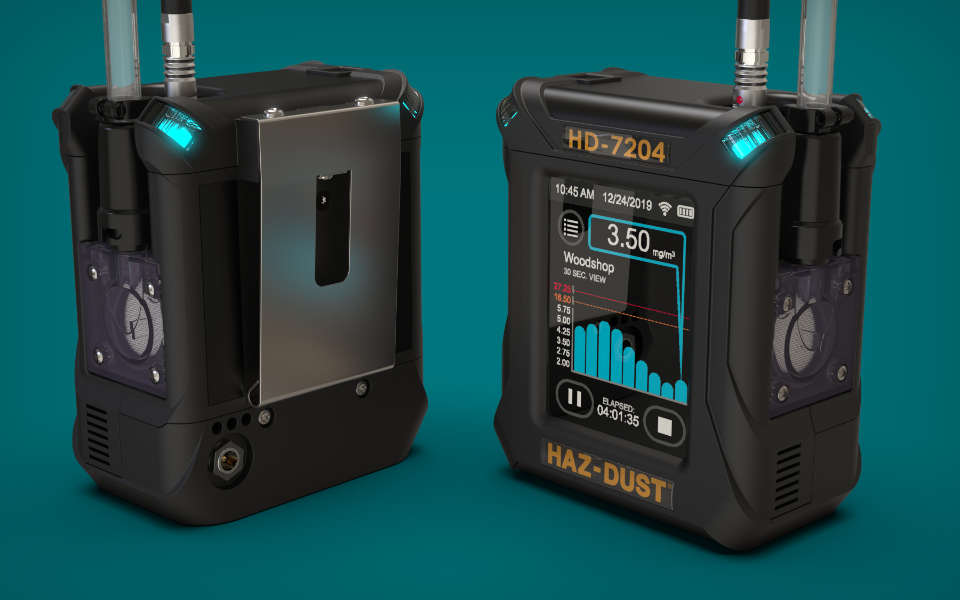"Daedalus was highly recommended to us, to assist our Engineering & Manufacturing Department in the development and refresh of one of our product lines. Each phase of the design process had clear benchmarks allowing us to measure project goals and completion. The Daedalus team had the specialists we needed to rapidly develop current state of the art technology including UX, industrial design, and mechanical, electrical, and software development. The project was a great success and we are completely satisfied.
We consider Daedalus a natural extension of the EDC family and look forward to working with them on the next project."
— Environmental Devices Corporation team
This project, the design and engineering of a real-time particulate monitoring system, marked the first time Daedalus worked with Environmental Devices Corporation.
Because this product is intended for an industry segment that was new to our team, we started with research to allow us to better understand the segment and end-user needs and wants. This allowed us to develop the initial requirements and concepts and refine the project budget and schedule to align with our client’s goals. We then proceeded with EDC in the full research, design, and development of the product.
Our first step was to familiarize ourselves with the different industry standards for particulate monitoring and investigate current devices on the market. We collaborated closely with EDC to establish what sensors and other hardware the new device would need to include and what tasks it needed to be capable of performing. The device would need to be compact, but sturdy enough to withstand a range of environmental conditions, and it would require space for a pump, batteries, sensor board, and an interactive screen. After weighing a few possible design options, the clear winner was the most ruggedized concept.
As work got underway in the next stage of the project, the initial scope expanded slightly as opportunities for new functionality and better performance presented themselves. This resulted in a vastly improved product that is expected to increase sales and profit margin.
Because of the anticipated production volumes, need for ruggedness, and the always improving cost-effectiveness of computer-aided-machining (CAM), machined aluminum was chosen for production. The team was also able to halve the physical size of the battery without sacrificing any significant functionality, which allowed for several additional improvements. By increasing the available internal space, we were able to provide WiFi support, LTE (cellular) radio support, add GPS functionality, and increase the profile of the new touchscreen, which improved the user experience.
This new particulate monitoring device was designed to detect a wider range of particle sizes and densities, allowing three existing Environmental Devices monitors to be replaced by one. In the new product, users are able to select which type or types of particulate matter they are interested in measuring, without sacrificing accuracy or functionality.
The Daedalus team designed the user interface and programmed the unit to support EDC’s existing data analysis software application, while outfitting the device with a variety of new tools and sensors that can be configured to provide even more data via further software updates, providing ample opportunities for expansion and improvement in the future, often without hardware changes.
